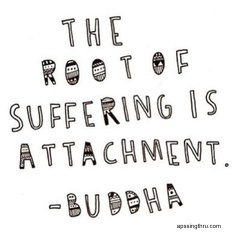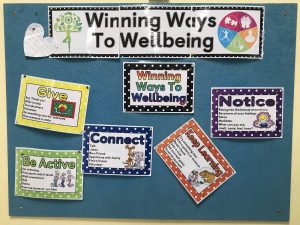The Christmas period is often a time of increased tension, stress or anxiety for many and can result in unpleasant experiences for individuals or families. Spending an extended period of time with friends and family doesn’t happen very often, so it would be beneficial for all if we were able to approach the festive season with a peaceful mind.
What causes stress at Christmas?
Mindfulness shows us that the struggles we go through in life often aren’t external to us (as we believe them to be) but are instead based in our perception and thoughts/beliefs about a situation. Most of us feel the pressure to get the right gifts for the right people, spend enough money but not too much money, make sure everyone has enough food and drink, wear the right outfit, attend the right events or parties, not drink too much,…and inevitably find time to demonstrate the right amount of merriment on social media…
A lot of the pressure we experience during the festive season can be found in our thought patterns or learned responses. Thoughts of how things should be and comparison to ideals or others can be harmful. If we tune into the present moment (no pun intended) and observe our true experience in the moment, we may find that we are able to enjoy the season more than previously. If something does go wrong – the turkey is dry, you couldn’t get that last minute gift because it had sold out – you can use mindfulness techniques to bring yourself back to the moment instead of getting caught in unhelpful negative thought patterns.

Tips to move mindfully through the festive season
A mindful queueing experience: You can’t avoid them, there are queues in shops, in supermarkets and on the roads this time of year. Every year we know it will happen the closer we get the Christmas, but every year we find ourselves frustrated, tense, irritated and sometimes infuriated with the constant waiting. Battling against the flow of life is a great source of stress for us. If we catch ourselves as frustration arises and instead of letting it take hold, we bring ourselves to our immediate experience of the moment. No judgment, no likes or dislikes, just observation. What does impatience feel like? Where is it held in the body? Try to feel it rather than think about it with the usual ‘why is this taking so long?’ ‘I should have joined the other queue’. You will notice almost straight away that tension eases out of your body and impatience gives way to patience naturally.
3 minute breathing space: When things get really testing (either during the build-up to Christmas day or during a family gathering for example) we often say things we regret or experience anger with ourselves or others. When we feel that a situation is getting too difficult, we can take 3 very effective steps to transform the moment mindfully.
- If you feel anger, impatience or frustration arising, catch it as soon as you are able and stop yourself from speaking or acting negatively. If you need to remove yourself from a situation, you can do so.
- Ground yourself in the moment by tuning into your breath. If you are agitated, try taking long slow breaths for a few minutes to give yourself space.
- Pay attention to what you are experiencing. Try to feel it in the body instead of listening to your thoughts about a situation or person. Bring your awareness back to the moment and your direct experience of it. Try to bring awareness to how a situation affects everybody, rather than just you.

Reclaim time: We always run out of time at Christmas. Not enough time to finish the shopping, wrap the gifts, visit friends and family, finish things off at work before the break. The constant rushing and pressure to ‘people please’ often leaves us more tired after the Christmas holiday than before it. This year, make a little time for yourself. The pressure we feel is often self-applied, so take a load off. It doesn’t have to be extravagant, but a little mindful self-care can go a long way. Take a walk outside and take in all that nature has to offer this season. Take a long bath with some essential oils. Read a new book. Find opportunities to bring yourself and your experience back into the present moment as often as possible instead of living in an imagined future or re-living a past event.

Christmas is the perfect time to practice gratitude; not just for the gifts given and received, but for all the fortunate things we experience in life that often get swamped by thoughts of how life should be or what we should have achieved ‘by now’. Take a few moments each day to list the things you are grateful for…I bet that list is much longer than your Christmas wish list.
World Mental Health Day 2018
Every day should be a mental health day, but while we have the chance for global recognition of the importance of mental health, we should take it. The World Health Organisation recognises the importance of mental health each year with a day dedicated to spreading recognition and education.
Wellbeing is an active, participant led experience. We can’t passively wait for wellbeing to improve (although time may help), instead, when we have the opportunity, we can make small changes and take small steps to improve mental health and all-round wellbeing.
What should you be doing on World Mental Health Day? You will see lots of campaigns all with different mental health themes highlighting action, education and impact studies on mental health. Here, I’d like to highlight some small things that you can do for yourself or with someone who may be experiencing mental health struggles to make a difference today.
But first…compassion

If you don’t feel ready for practical action, remember to show yourself kindness and compassion. We are good at looking after ourselves when we have the flu or a broken bone, but often berate ourselves internally when our thoughts or negative states of mind get the better of us. Mental health needs as much care and compassion as physical health. Try to reconnect with the moment through breathing meditation and allow yourself to ‘be’ rather than constantly trying to ‘do’. It’s ok to not be ok…
Try going outside
We have been lucky that the weather this WMHD is sunny and warm. Try sitting outside and taking a few moments in mindfulness. Tune into what you can hear (whether you are in the city or countryside) in the moment. Are the sounds near or far? Loud or soft? Natural or man-made? Next try noticing what you can feel – the sun on your face; breeze in your hair. Just being outside for a few moments can bring an appreciation for the beauty of life that is often lost when your mental health is affected.
Read a good book
It’s often hard to focus the mind or hold down thoughts when our mental health is suffering. Starting a simple task like reading a book can help relax the entire body and direct your thoughts into the present instead of the negative or ruminative thoughts that can occupy our minds. If you don’t enjoy reading, try mindful sketching or colouring, listening to music or playing an instrument. Even activities like baking can really bring you back to now, where your mind and body can rest.
Talk it over or write it down

Easier said than done I know, but when you are experiencing mental ill health, it’s important to maintain contact with family and friends. If you are experiencing difficulties, it’s important that you don’t try to struggle through on your own. It’s easy to stay at home alone under the duvet, but as I said at the start, wellbeing is an active process. Even a few words spoken in the gym or the shops can help you feel better. If you’re not ready to speak in person, try journalling your thoughts. Writing down your thoughts helps to rationalise them and gives context. What you may have spent all day worrying about could take on a new perspective when it’s before you in black and white. Writing or talking about how you feel helps you to let go of the grasp that we sometimes have when rumination kicks in. Turning thoughts into words can be a great release.
Gratitude
I’ve done a lot of ‘gratitude diaries’ over the years and I admit to being skeptical almost every time. However, they are a very useful activity for changing negative or unhelpful thought patterns. We can tend to get lost in our struggles or feel like we have a mountain to climb every day. If you spend a few moments throughout each day to list everything that you are grateful for, you will start to see that there are many things that can lift your mood each day: the sunlight coming through the curtains, the sound of birdsong, a good night’s sleep, an excellent cup of coffee on the way to work, the laughter of colleagues, a small kindness from a stranger, a good news story in the press, a good movie on TV, a long soak in the bath.
Pace yourself
When your mood is low or life feels like a struggle, it often seems that when you wake up in the morning, the day seems to loom over you like an insurmountable obstacle. Try to break your day up into smaller sections so you can tackle each one with more energy and a lighter mood. Try to stay focused on the immediate activities that you are doing instead of casting your mind ahead with what-ifs and rumination. Stay present and let go of the weight of the future and the past.
Be well.
Mindfulness in sports
Mindfulness is the practice of applying awareness to the present moment through sense-based experience rather than thought. In other words, the ability to bring attention to what is happening right now, without imposing judgments on the quality or meaning of the experience. In practicing mindfulness, sportspeople are able to notice thoughts as passing mental events that don’t require action. The ability to observe in this way can lessen the reflex response to a situation and increase the ability to respond in a calmer more objective way.
We often remember the sporting outbursts (John McEnroe, Zinedine Zidane to name but a few) where players are overcome with rage, feelings of injustice or unfair treatment, or respond negatively to crowd interference. With athletes not only needing to consistently turn in their best performance, but also being role models for fans and aspiring young people, changing the way individuals react to thoughts is a growing area of focus in sports.
A Chosen Response
It is not just the one-off outbursts that sportspeople have to contend with; performance anxiety is a large factor whether you are a team player or individual athlete. So how can mindfulness help? Mindfulness can help individuals become aware of their thoughts, bodily sensations and environment. Through noticing as an observer what is happening in the present moment, we can choose to respond in a certain way instead of relying on the reflex, learned response that often isn’t the most helpful.

We can choose to notice the environmental conditions and make adjustments to our play. We can notice how certain scenarios cause tension in the body and we can choose to relax those parts of the body. Or, we can just notice as an observer and watch the feelings or thoughts arise and pass away – they are mental events that don’t necessarily need a reaction; especially where the thoughts are unhelpful or negative or likely to elicit a negative response. Sport can be a very stressful environment. Mindfulness can help individuals to let go of emotional responses and instead help them to act with more balance and wisdom; this could be the difference between winning and losing.
Improving Focus
Often in competitive sports (professional and amateur) it’s easy to ruminate on past mistakes or predict an outcome before the performance has even started. Mindfulness brings us back to the present moment – what is happening right now? By focusing only on what is happening in the moment, thoughts of predicted failure or learned reactions to past events start to lose their power. Our minds and bodies find a freedom to perform in the moment.

As an amateur competitive cyclist, I have felt and witnessed performance anxiety and the effects it can have on the enjoyment and outcome for individuals. It’s easy to slip into the mental cycle of berating yourself for not doing well, or having moments of self-doubt. Mindfulness might not stop these moments, but it will teach you how to observe them purely as mental events and not based on the reality of the moment. Bringing yourself back to the present and anchoring attention on your breath is a powerful practice to overcome attachment to negative thought patterns. Trying a simple breathing practice before an event can reset the mind and body to be able to focus productively on the current situation.
Positive Imagery
Mindfulness is a powerful method for creating space in the mind which can then be used to meditate on positive visualisations. Utilising the senses can affirm visualisations bringing them to life with vividness that can overcome anxiety and negative thought patterns. Creating a positive mental image of a shot, play, race or outcome can help increase confidence and focus making mindfulness an essential practice not only for success, but also for enjoyment.

Practicing mindfulness is mental training that helps refocus awareness so that attention can be redirected purposefully to help you perform to the best of your ability. As with all training, it is a process that requires commitment and repetition. Mindfulness begins with a sitting practice and deliberate times set aside for mindful enquiry. This then moves on to mindful movement and can become a whole of life practice that can be utilised on the court/pitch/field/track before, during and after performances.
The Well Nest could help your sports team to improve performance through the practice of Mindfulness. To learn more about mindfulness, tailor a mindfulness package for your club or team or to register for mindfulness courses in Staffordshire (suitable for everyone, not only athletes) take a look at the Mindfulness pages or contact [email protected]
Letting go of the past
Letting go of the past will be an issue for most people at some point in their lives. We can all remember hurtful things that were said to us decades ago, or bad experiences that we (knowingly or unconsciously) allow to affect our future experiences. I think we would all agree that being able to let go of the past would provide us with more space in our minds and more peace in our lives.
So how do we do it? It comes back to basic mindfulness principles of being in the present moment, using an anchor to keep us there and staying intentionally and without judgment.
Something that should help us gain some perspective on letting go is that the past has already been and gone; it has been let go of already. What our mind is holding onto is attachment to an event, thought, experience or occurrence from the past. It’s that attachment that stays with us and effects our mind over and over again. When we go into the ruminative state, we run the past (or an imagined future) over and over in our minds. Neither the past nor the future exist; it’s just our thoughts that disturb the mind.

If we repeatedly bring ourselves back to the present moment, our mind will start to learn not to dwell in the past and slowly we will let go of attachment or harmful/negative thought patterns that seem to have power over us. One of the best anchors that we can use in our practice of letting go is the breath. It’s always with us and accessible at any time. Bringing awareness to the breath frees the mind from the past and brings it immediately into the present moment. A simple breathing meditation can be used any time, any place and can provide immediate relief from unhelpful thoughts based on the past. By being in the present moment, we are forced to let go immediately of our attachment to the past. The process won’t be easy and it will take time to be free from attachment to the past for longer than a few moments, but practising bringing ourselves back to the present moment will train the mind to let go.
If the breath doesn’t work for you, or your thoughts prove a stronger anchor than observing the breath, you can try a sense based mindfulness practice; using what you hear, see, smell, feel etc in the environment at that moment to keep you in the present.
Using mindfulness to break down attachment stems from Buddhist teachings and practices that have worked for providing mental calm and clarity for many hundreds of years. The Buddhist tradition that I follow very much focuses on making Buddhist teachings practical and accessible for the modern world. Applying traditional mindfulness techniques in practical ways means the application of this ancient knowledge is relevant to helping us solve our modern problems.
Try something old; to find something new.
Winning Ways to Wellbeing
I visited a primary school in Warwickshire recently and was pleased to see a display promoting wellbeing through 5 practical steps that are now promoted as basic steps to wellbeing all over the world. The ‘5 ways to wellbeing’ outline simple steps that we can all take to improve our wellbeing and are now advocated by the NHS in order to help people actively take control of their wellbeing. Starting small and building to a holistic approach to wellbeing can help us lessen or avoid more long-term conditions such as depression or anxiety that can effect physical and mental health for many years.
But what is wellbeing exactly? What are we trying to improve? Undoubtedly our mental health and states of mind, but wellbeing is a whole of life experience. An improvement in our overall quality of life and experience through practical, active steps to increase our levels of enjoyment, self-worth, physical and mental health and interactions with others.
This sounds like a big challenge, right? Definitely. But luckily the 5 ways to wellbeing really do work and are a great start to improving wellbeing.
The 5 Ways to Wellbeing
- Connect – There is strong evidence that being around others (friends, family, social groups) not only increases our all-round wellbeing, but also increases our longevity. Talking is the best therapy. You don’t have to share everything with others; start small. Make a meaningful connection instead of living in the digital world all the time. When you ask someone how they are, actually listen and pay attention to the answer. Speak to a stranger or make conversation while waiting in a queue. Try car sharing with a colleague; they might even become a friend.
- Be active – We have all read the decades of evidence that shows being physically active improves our mental health…so why do we still doubt it? Because it’s not easy to get active and stay active. But it’s not hard either. There are small changes we can make on the way to becoming more active and improving wellbeing. Take the stairs instead of the lift. Take a class after work with colleagues or organise a new sporting activity for all work colleagues to try. Go for a walk at lunchtime. Get off the bus a stop earlier and walk to your destination. If you feel like more of a challenge, take up a regular class that is proven to aid concentration, inner peace and help sleep…yoga is the obvious.
- Take notice – The basics of mindfulness; notice your surroundings. Be present in the moment and just ‘be’ instead of always ‘doing’. The only moment that exists is right now, so try to pay more attention to what is really going on instead of living in your head thinking about what has already happened or what might happen. Being mindful increases our awareness and knowledge of the self. If we know what we spend our time thinking about, we can start to change our thought patterns for the better. Living mindfully is a difficult task for the novice, but we can all try small steps. Choose a mindfulness cue; a sound or sight that whenever you hear/see it reminds you to take 60 seconds to be mindful and notice what’s going on in the environment.
- Keep learning – Not only is the mind kept active, but there is the chance for social interaction, being mindful and being active all rolled into one here. Continued learning can enhance self-esteem, motivation and can help you to prioritise goals and your own happiness. This doesn’t have to be a formal class to count as learning. You can try learning a new word each day, try reading the news in a foreign language, listen to classical music, join a book club.
- Give – By giving to others we develop our compassion which in turn increases our compassion for ourselves. Engaging in acts of kindness helps us to gain perspective on our own internal struggles and gain an understanding of the greater good. Giving your time, expertise or just random acts of kindness to others can greatly increase your wellbeing and decrease your attachment to seeking happiness through material gain.
A challenge…
I challenge you to try the 5 Winning Ways to Wellbeing for one week and track how you feel in body and mind. Leave a comment below about your experiences and check back to see my review of a week of Winning Ways to Wellbeing.


